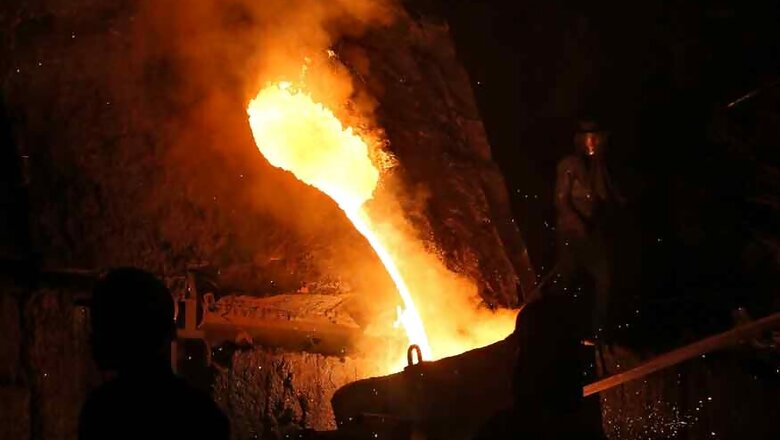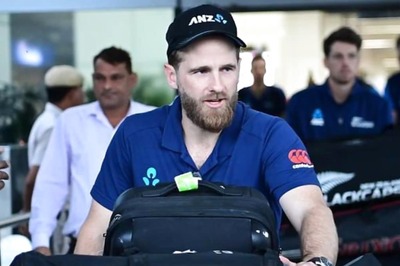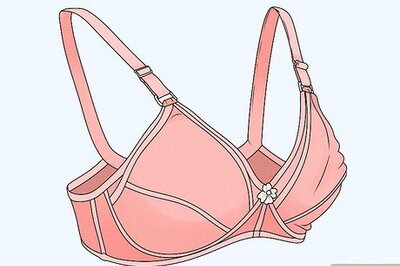
views
New Delhi: Indian manufacturers of graphite electrodes used in electric arc furnaces are booming on the back of China's pollution crackdown, but soaring prices have set the companies on a collision course with government and steelmakers.
In an unusual intervention, India's steel ministry is pushing for electrode makers to cut prices for smaller steelmakers after a 500 percent surge in domestic prices, sources told Reuters.
The government has also signalled it may introduce an export tax, aiming to boost domestic supply.
India's two manufacturers account for about a quarter of global production and the moves could cut margins and pile even more pressure on prices for India's international customers such as ArcelorMittal and South Korea's POSCO.
Graphite electrodes are used to melt scrap in electric arc furnaces to produce new steel. Their main ingredient is high-value needle coke which is made from either petroleum or coal tar.
As China tightened the screws last year on polluting industrial plants, about 30 percent of its graphite electrode production has been shut, leading to an explosion in global prices and benefiting manufacturers elsewhere.
India's electrode exports rose 71 percent over April-August last year, while shares of Graphite India Ltd rose nine-fold in 2017 and HEG Ltd shares jumped 15-fold.
But the steep run-up in electrode prices has squeezed India's smaller steel producers, prompting the Steel Ministry to set up a meeting with producers and the steel industry on Jan. 15.
PRESSURE ON PRICES
The ministry asked electrode makers to draw up fixed-term contracts with steel companies to protect them under Prime Minister Narendra Modi's "Make in India" plan to boost manufacturing, according to two company officials who attended the meeting.
It also urged them to bring pricing for smaller firms such as Kalyani Steels Ltd and Sunflag Iron and Steel Co. Ltd in line with those for big companies such as Jindal Steel and Power Ltd that have entered into long-term contracts.
To back up its request, the government has inserted a provision in its latest budget that would allow it to impose an export tariff rate as high as 20 percent on electrode makers.
"This provision will enable Indian manufacturers to have long-term contracts with the manufacturers so the quantity is assured and the rate will stabilise," Steel Secretary Aruna Sharma told Reuters.
She declined to confirm the Jan. 15 meeting with graphite electrode manufacturers and steelmakers.
Electrode makers have since agreed to cut prices for local steel companies by as much as 20 percent for February and March, two company sources involved in the talks said, although this is well below the 50 percent price cuts sought by steelmakers.
"They have said they will set quarterly contracts with us, but the price reduction is not much. Lowering the prices may be a loss for electrode makers but it is not a gain for us," said a steel industry executive, who declined to be named due to the sensitivity of the matter.
Furthermore, electrode manufacturers plan to raise prices again by as much as 20 percent during April-June, two company sources said, which would add further fuel to the dispute.
The manufacturers argue they need to protect margins due to high prices for imported needle coke, which accounts for 61 percent of the cost of electrode production.
In a 10-page letter sent to the ministry in January and seen by Reuters, HEG, which exports to about 30 countries, also said it was opposed to any export tariff and would pass on the cost to domestic consumers.
The dispute looks set to run on as analysts say it will take time to rebalance the market, given pressure on supplies of needle coke.
Prices for the raw material soared nearly fivefold over the past year or so from $700 a tonne to $3,600 a tonne, according to data from research firm Anand Rathi.
Executives at HEG and Graphite India Ltd did not reply to Reuters emails seeking comment.


















Comments
0 comment